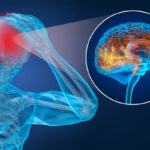
What is Post-Traumatic Stress Disorder?
Post-traumatic Stress Disorder (PTSD) is condition associated with intense physiological, emotional, and cognitive reactions to a traumatic or stressful life event. There are multiple different events that qualify as trauma; these generally include events that involve threat or experiences involving death, physical harm, or violations of bodily integrity. Some examples of traumatic events include sexual assault, wartime experiences, motor vehicle accidents, or physical/sexual abuse. Symptom severity is not necessarily a reflection of the perceived severity of the event. For example, individuals who witnessed a car crash, which they might interpret as “not as bad as other people’s experience” can still have extremely severe symptoms of PTSD. This relates to genetic predispositions, environmental factors, and one’s understanding and interpretation of the event.
Symptoms of PTSD include nightmares or flashbacks (i.e. unwanted memories of the trauma), avoidance of situations that remind one of the trauma, heightened reactions and startle response, anxiety, feelings of dissociation (i.e. feeling disconnected to ones body or life in a negative way) intense anger, or depressed mood.
Neurofeedback for PTSD
Neurofeedback has demonstrated powerful results in treating individuals with PTSD. In fact, the U.S. Army and Navy has found neurofeedback training particularly helpful in treating veterans suffering PTSD as a result experiences in Iraq and Afghanistan. Neurofeedback works to target dysregulation in areas of the brain associated with excessive fear response, hyperarousal, and emotional memory processes. Additionally, treatment with neurofeedback can help alleviate associated symptoms of PTSD including insomnia, anger, fatigue, difficulties with concentration, etc.
Psychotherapy for PTSD
Psychotherapy is another important treatment intervention for PTSD. While neurofeedback can help target the neurobiology and physiological responses associated with PTSD, psychotherapy can help the individual process the experience and interpretation of memories in a safe environment. Cognitive Behavioral Therapy (CBT) for PTSD is an evidence based treatment and one of the primary interventions utilized by the US military for PTSD. Working with one of our expert psychologists can be an important part of the recovery process.
Neurofeedback Treats PTSD
Neurofeedback also treats Post Traumatic Stress Disorder (PTSD).
It’s important to note how common comorbidities are among all the conditions we’ve discussed. For example, people with TBI may also suffer from depression, and Major Depressive Disorder and GAD often occur together.
The Pandemic & PTSD
PTSD occurs when a person has difficulty recovering after experiencing or witnessing a terrifying event and is associated with intense physiological, emotional, and cognitive reactions to a traumatic or stressful life event.
It also has one of the widest spectrums of criteria for psychological conditions.
What We Treat
Operating Hours
| Monday – Friday | 10:00 – 8:00 |
| Saturday | Closed |
| Sunday | 10:00 - 1:00 |
| Holidays | Closed |
Book Appointment
Quick Contact
- Address 666 Dundee Rd Suite #305, Northbrook, IL 60062
- Email admin@chicagomindsolutions.com
- Phone (847) 656-5080




